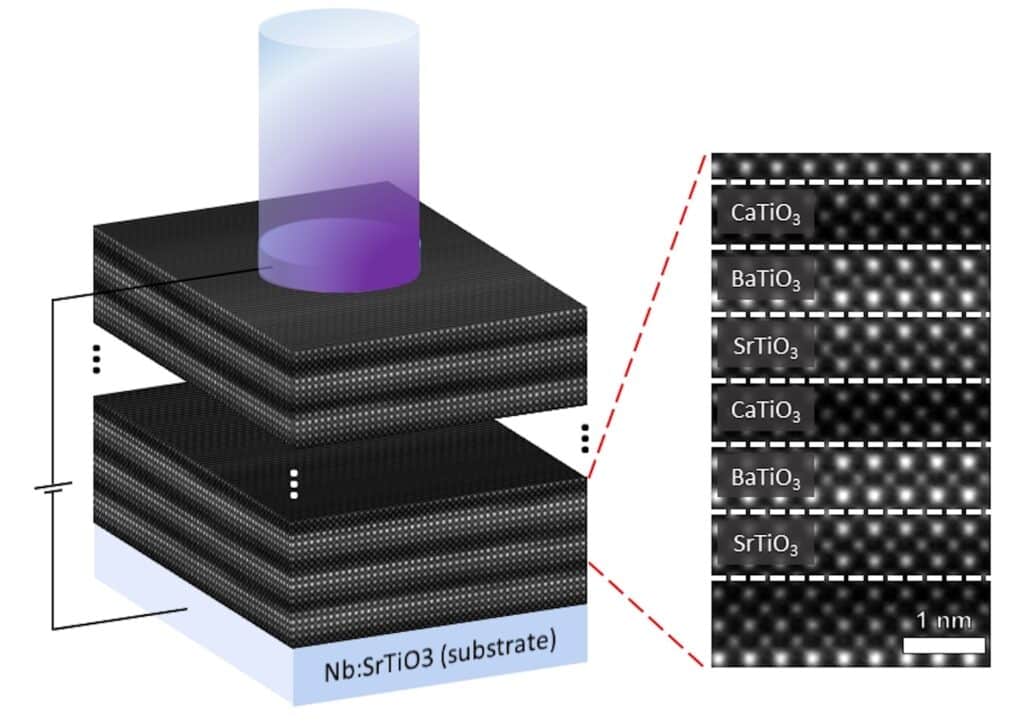Would you like to get notifications from Christian?
What happened? Scientists have made a breakthrough in solar cell technology that could lead to a 1000% increase in the voltage! By arranging three different materials in a periodic lattice, they were able to create crystals of barium titanate, strontium titanate, and calcium titanate. This generated significantly more voltage than traditional solar cells. While there is still some work to be done before this technology can be implemented into solar cells, the potential for increased efficiency is clear. Stay tuned for updates on this exciting breakthrough!

Why is this important? Solar cells are a key component in the fight against climate change. The more efficient they are, the less reliance we have on fossil fuels. This breakthrough has the potential to drastically reduce our carbon footprint and help save our planet! Solar cells that are exceptionally efficient will aid in the development of a decentralized energy system. If people can produce and store power on their own, it would lead to a completely different kind of society in which big centralized energy suppliers are no longer necessary. If energy was truly free, it would reduce the cost of many other items, such as manufacturing, transportation, heating, mobility, and a variety of other things. As a result of this study, solar cells are not the only beneficiaries; rather, it is beneficial for our planet's future!
If you're interested in solar energy, stay up to date on the latest breakthroughs and news by following solar companies and researchers on social media. You can also support renewable energy initiatives in your community, or even start your own solar energy project! If we all work together, we can make a difference for our planet.
Thank you for reading! I hope this article was informative and helped you understand the potential of solar cells. Please share with anyone who might be interested in learning more about solar energy and its role in fighting climate change. Together, we can make a difference!
Author: Christian Kromme
First Appeared On: Disruptive Inspiration Daily
Christian is a futurist and trendwatcher who speaks about the impact of exponential technologies like AI on organizations, people, and talents. Christian tailors his presentations to your audience's specific industries and needs.



Our world is changing at an exponential rate! A big tidal wave of digital transformation and disruption is coming at us fast. Many organizations see this wave as a threat and experience stress, but there are also organizations that just see this wave as an opportunity.

Imagine sitting with just 10-15 fellow executives at a premier location, gaining clarity on the impact of AI on your industry while enjoying an exquisite dining experience. These are not just meetings—they are transformative moments that will shape the future of your organization



In the future, 3D printing and generative design will allow for products to be designed in a more decentralized manner, and production will take place closer to the customer and fully on-demand. 3D printing technology will also allow for more customization and personalization of products.


The agricultural industry is ripe for disruption. Robotics, AI, and IoT are all technologies that have the potential to radically transform the way we grow food. In combination with vertical farming, these technologies could increase the efficiency and quality of agricultural products.

A human-centered society is one that puts people first and where technology is used to unite and empower people. It is a society that values biological life and dignity above all else. It is a society that recognizes the importance of human relationships and works to strengthen them. In a human-centered society, all members of the community are valued and treated with respect.


The future of healthcare is here. New technologies like AI, IoT, big data, and smart sensors make it possible to become the CEO of your own health. Imagine that your phone can listen to your voice and AI algorithms can detect small nuances in the tone of your voice that indicate specific diseases.
